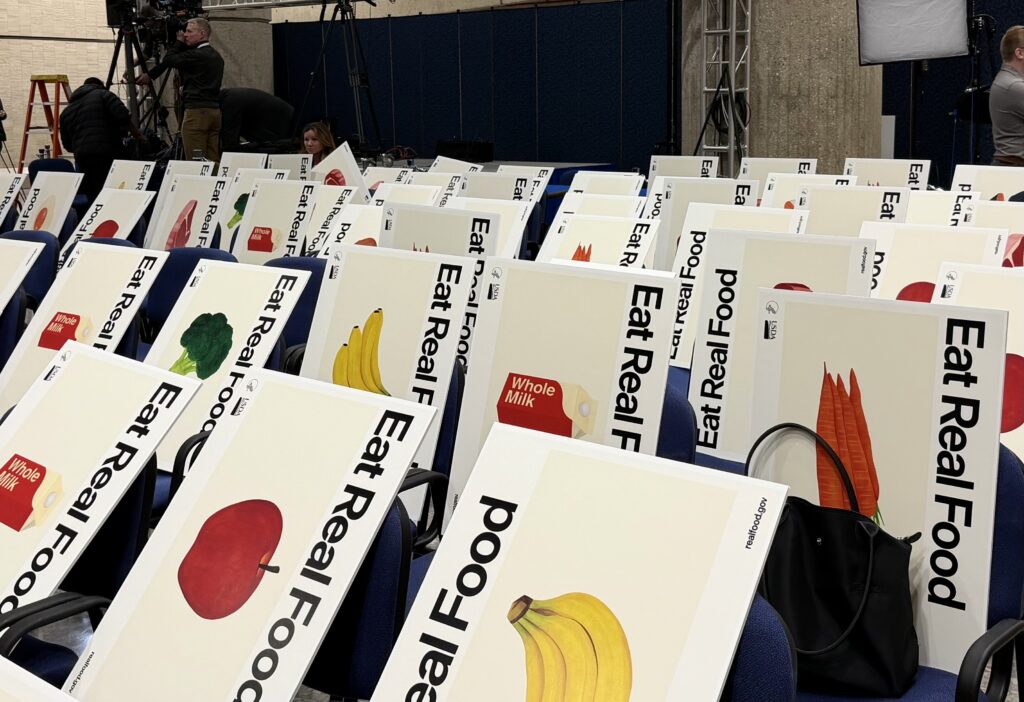On Thursday, Sen. Amy Klobuchar (D-MN), Chair of the Senate Judiciary Subcommittee on Antitrust, Competition Policy and Consumer Rights, filed the Competition and Antitrust Law Enforcement Reform Act. The bill is co-sponsored by Senators Richard Blumenthal (D-CT), Cory Booker (D-NJ), Ed Mareky (D-MA), and Brian Schatz (D-HI). This comprehensive Act is a major overhaul of existing anti-monopoly law, taking aim at the growing stranglehold a few corporations have over our markets and economy.
In line with Family Farm Action Alliance’s recent research findings, the newly introduced Act affirms that competitive markets are necessary to ensure economic opportunity for all. The act is hinged on the understanding that monopoly power hinders new business startups, depresses wages, and “increases economic inequality, with particularly damaging effects on historically-disadvantaged communities.” The Act addresses these findings by providing stronger guidance to the courts, setting up a new Office of the Competition Advocate, and mandating the collection of information and reporting on anti-competitive behaviors.
Joe Maxwell, President of Family Farm Action Alliance, said: “Family Farm Action Alliance thanks Senator Klobuchar and her colleagues for filing the Competition and Antitrust Law Enforcement Reform Act. Their swift action to take on monopolies so early in this session of Congress is a clear signal of their commitment to democratizing our food system and economy. A decades-long trend of unbridled consolidation has led to far-reaching corruption, the decimation of competitive markets, and the extraction of wealth and opportunity from our rural communities. This act is a historic step toward curbing monopolies and building an inclusive economy for all small businesses, workers, and farmers.”
Media Contact: Anna Straus, [email protected]
Summary: Competition and Antitrust Law Enforcement Reform Act
Family Farm Action Alliance has distilled this 56 page act into 15 comprehensive bullet points to promote public understanding of this policy.
New definitions and standards of review for the courts and agencies:
- Definitions:
- Defines Market Power: When one party (likely a corporation) dictates the terms of a deal, putting the other party at a disadvantage that would not exist in a truly competitive market.
- Creates a new definition for Unlawful Acquisitions: An acquisition or merger that creates “an appreciable risk of materially lessening of competition, or to tend to create a monopoly or monopsony.”
- Exclusionary Conduct is “conduct by a party that materially disadvantages one or more actual or potential competitors” or prevents “the ability or incentive of one or more actual or potential competitors to compete.”
- Court Standards
- With the new definition of Exclusionary Conduct, courts will now have to use this new standard when they are finding either an unlawful acquisition or merger, or an unlawful action.
- The act establishes five separate criteria where a court must find a transaction to be unlawful in cases brought by the Federal Trade Commission (FTC), Department of Justice (DOJ), or a State Attorney General. The first of these criteria is determining whether an “acquisition would lead to a significant increase in market concentration in any relevant market.”
- When a court finds “the acquisition would lead to a significant increase in market concentration in any relevant market” or if the corporation meets other market thresholds like controlling over 50% of a market, a corporation has to prove their acquisition will not “create an appreciable risk of materially lessening competition.” This flips the burden of proof: previously, acquisitions and mergers could only be stopped if the government proved in court that the transaction was illegal. Now corporations would have to prove their transactions are not illegal.
- Establishes fines for corporations who violate antitrust laws. Fines could reach up to 15 percent of the corporation’s annual U.S. revenues, or 30% of annual U.S. revenues of the party harmed by their action, whichever amount is greater.
- Requires DOJ and FTC to issue joint enforcement guidelines for the provisions contained in the Act. Right now DOJ and FTC both take up antitrust suits and cases, but they typically use different guidelines and seldom work together. By establishing joint enforcement guidelines they would work closer together and antitrust law would be bolstered by uniform guidelines.
Establishment of an Office of the Competition Advocate:
- The new office would solicit reports from small businesses, consumers and workers about anticompetitive behavior, using this information to make recommendations to the DOJ, FTC and other federal agencies.
- The new office would oversee a Data Center which would collect and maintain data on antitrust and anti-competitive activities that is easily accessible to the public. Currently, it is difficult to find this information and there is no centralized place where it is available to the public.
- The new office would house a Division of Market Analysis. This division would investigate markets and industry sectors to analyze competitive conditions and dynamics affecting markets and industry sectors, evaluating the impact of acquisitions and mergers have on these markets.
- Provides Whistleblower Protection for those who file complaints.
Funding, required studies, and reports:
- Provides both FTC and DOJ additional funding for investigations and anti-monopoly actions.
- Requires the FTC to conduct and publish a study on the competitive impact of institutional investors, like hedge funds, credit unions and mutual funds, in the market.
- Requires the Comptroller General of the United States to conduct a review of the success that mergers and acquisitions’ remedies have had on the market the six years prior to the adoption of the Act.
- Requires corporations who have been permitted an acquisition or merger after the adoption of the Act, to report data for the next five years that can be reviewed by the DOJ and FTC to determine the competitive impact the transaction has had on the market.
This act is extensive and will help stem mergers and acquisitions within the food and agriculture markets, but even so, it is only a start to what must be done to wrestle our economy out of the hands of the monopolies. This bill primarily targets a court’s review of corporate acquisitions and mergers, governed by the Department of Justice and the Federal Trade Commission. It does not address monopoly meatpacker’s abusive practices governed by the Packers and Stockyards Act or certain other issues highlighted in Family Farm Action Alliance’s Toolkit for the 117th Congress. More legislative action needs to be taken to curb globalized concentration, confront abuses of power, and establish fair markets.




